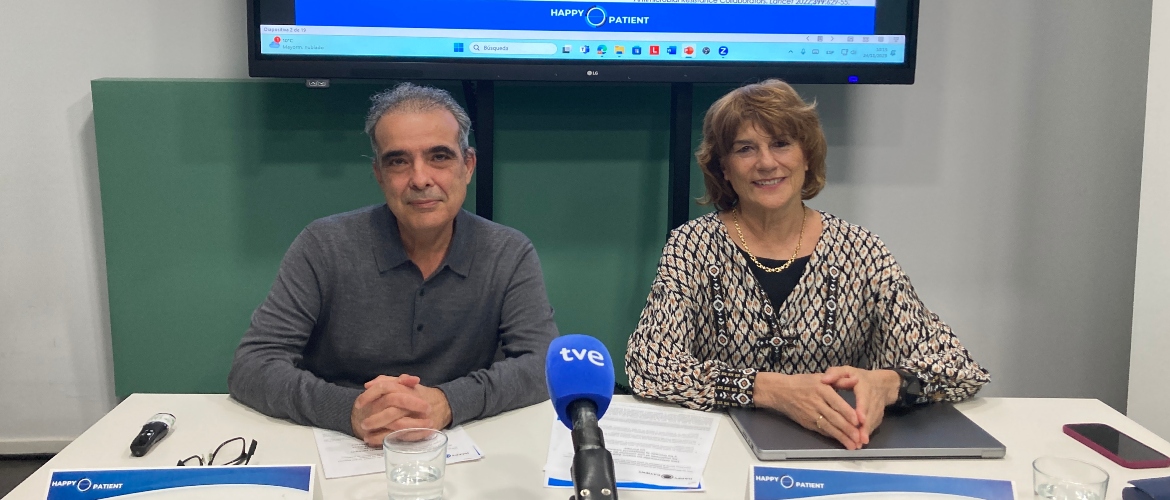In Europe, nearly 35,000 people die each year due to antimicrobial resistance, mainly caused by inappropriate antibiotic use, as reflected in data from the European Centre for Disease Prevention and Control. This is a global public health problem, which the World Health Organization (WHO) has already identified as one of the major challenges facing the population, both currently and in the years to come. In this context, the results achieved by HAPPY PATIENT, a cutting-edge project co-funded by the European Commission in this field, open new horizons.
The interventions carried out by the HAPPY PATIENT team in four healthcare settings —general practice, out-of-hours services, pharmacies, and nursing homes— between 2022 and 2023 in Spain, Lithuania, Poland, France, and Greece, have demonstrated to curb antimicrobial resistance in Europe. This also suggests that if this intervention was implemented across all European Union countries, it would result in annual savings of 114 million euros in the health budgets of this territory.
The reduction of unnecessary prescriptions would entail a significant decrease in pharmaceutical expenditure
One of the most significant research lines of this project is the economic analysis of the improvements recorded; this analysis was carried out by the University of Las Palmas de Gran Canaria in its area of health economics studies, led by Beatriz González López-Valcárcel, who also participated in the public presentation of the results.
The data projection is based on two different scenarios: a realistic scenario (related to the average results of the 5 countries) and an optimistic scenario (referring to the country with the best improvement). While a realistic scenario would estimate a reduction in antibiotic consumption by 23 million prescriptions, generating an annual economic saving of 114 million euros; in the most optimistic scenario, the reduction in antibiotic consumption would amount to 47 million unnecessary prescriptions, resulting in an annual economic saving of 385 million euros. The obtained data are based on projections of what would happen if the intervention applied in the HAPPY PATIENT project were implemented in all European Union countries. Thus, consistent results would be obtained in the reduction of unnecessary prescriptions.
APO: a simple methodology
To develop and implement interventions for reducing inappropriate antimicrobial use, the Audit Project Odense (APO) methodology has been followed. This methodology involves a before and after intervention registry. The overall methodology was adapted to the characteristics of the four settings: in general practice and out-of-hours services all suspected infections were recorded, as well as their symptoms, diagnoses, and antibiotic prescription. In nursing homes and pharmacies all cases with antibiotic prescriptions were registered, in nursing homes including their symptoms and diagnoses and in pharmacies the advice and safety checks. In all cases antibiotic appropriateness was assessed and compared between the two registries according to clinical algorithms developed by project experts. Through this methodology, a total of 407 healthcare professionals from the four healthcare settings have participated in HAPPY PATIENT, which concludes after three years of work. The project has successfully changed the behaviour of healthcare professionals towards the use of antimicrobials in the five target countries, despite their different healthcare systems and socio-cultural contexts. This variation in results is explained in detail later.
The pharmaceutical field: leading in the improvement of appropriate dispensing
HAPPY PATIENT has proven to be particularly innovative in the community pharmacy environment: this has been emphasized by professionals in this field who have participated in the project. In this regard, participants from Spain, France, Greece, Poland, and Lithuania claim to have improved their dispensing practices by conducting more safety checks and obtaining more crucial information about antibiotic prescriptions.
These improvements can contribute not only to a better use of antibiotics and, therefore, a reduced development of resistance but also to promoting greater patient safety and satisfaction for those who participated, or the returning of leftover antibiotics once the treatment is completed.
In both registries more than 2.400 dispensing cases were recorded in the 5 countries. After the multifaceted intervention, the safety checks (comprising the explanation of interactions, contraindications and allergies of the antibiotics dispensed) increased by 18%.
Variability in the out-of-hours services
In total, considering account data for all target countries, incorrect antibiotic choices decreased by 25.1%, and inappropriate antimicrobial prescribing decreased by 0.8% after the interventions.
In the overall analysis of the five countries, it was initially observed in the first wave of the audit (prior to the intervention) that healthcare professionals prescribed unnecessary antibiotics in 52.5% of cases. After the implementation of interventions, this percentage slightly decreased to 52.1% of prescriptions.
Nursing homes: a complex setting
Surprisingly, the results from nursing homes didn’t improve. Several reasons might explain this: the complexity of the nursing homes, high turnover of professionals, no in-house doctors and the intervention mainly focusing on non-prescribing professionals. These results encourage the HAPPY PATIENT team to even increase the efforts towards their new project, IMAGINE, developing a more complex and adapted intervention exclusively for nursing homes.
General Practice: 10% of improvement
HAPPY PATIENT has reduced around 10% the inappropriate use of antibiotics in general practice. Results differ between countries due to several reasons, obtaining a maximum of 20% improvement in Lithuania.





